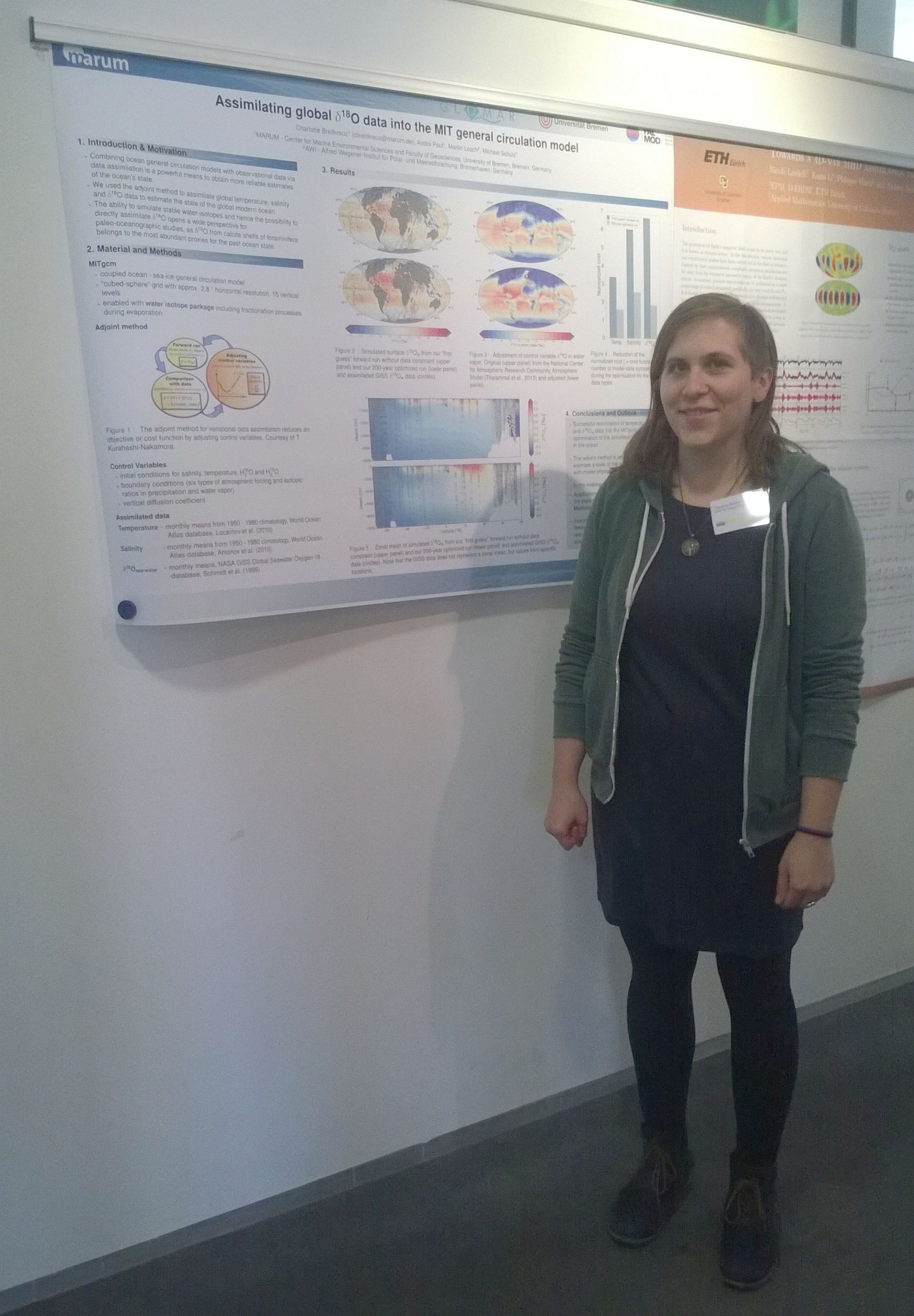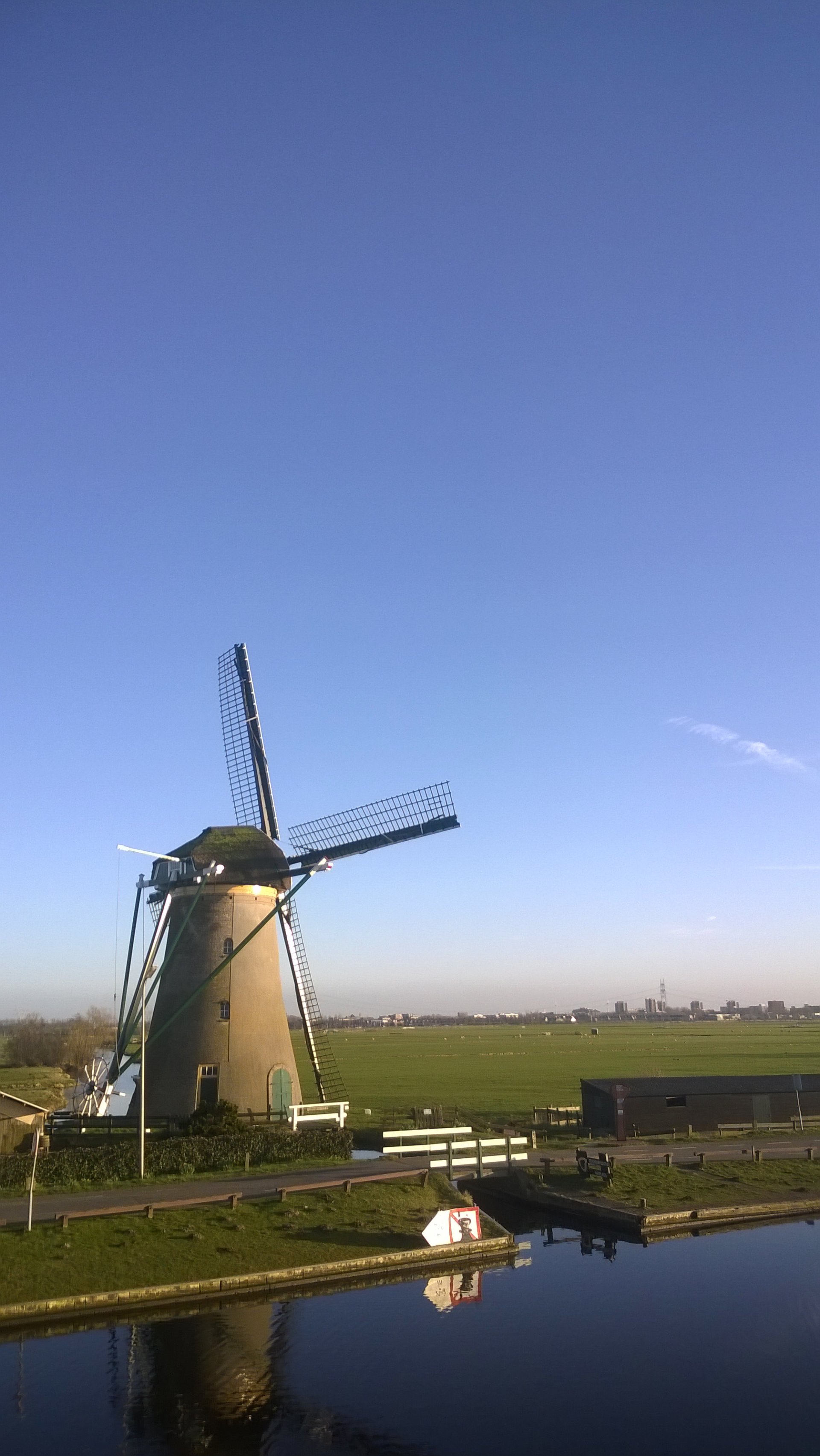- Graduate School GLOMAR
- PhD student reports
- Other activities
- Charlotte Breitkreuz
Charlotte Breitkreuz
Report of GLOMAR PhD student Charlotte Breitkreuz about her participation in the Workshop “Emerging Applications of Data Assimilations in the Geosciences” in Leiden, the Netherlands, 13-17 March 2017
The Workshop “Emerging Applications of Data Assimilation in the Geosciences” took place in Leiden, the Netherlands, from 13 – 17 March 2017. The workshop aimed at bringing together scientists of different fields in the Geosciences who are working with data assimilation techniques and to stimulate scientific exchange and future collaborations. About 40 scientists, mainly from the field of (paleo-)climatology and seismology participated in the workshop. The venue of the workshop was the Lorentz Center (http://www.lorentzcenter.nl/), which professionally organizes scientific workshops. They provided a very nice working environment including individual offices for the participants, seminar rooms and a common room.
The workshop started with tutorial talks on climatology, seismology, data assimilation and statistics to find common ground. In the he following days, the mornings were typically filled with talks about specific applications of data assimilation and the afternoons with discussions within focus groups. The groups were focusing on relevant topics/problems in data assimilation overarching different application fields. Within these focus groups we had lively discussions followed by reporting back to all participants. I joined the focus group ‘Joint parameter and state estimation’.
Even though the discussions in the focus groups were not specifically related to my PhD project they were still very helpful in a general way. My PhD project includes developing and implementing a new method for data assimilation in a paleo-oceanographic set-up. This includes many challenges, e.g. the sparsity and the uncertainty of the data, and data assimilation is still not well-established in the field of paleo-oceanography. The typical methods applied in climatology are not applicable to my set up, as they require substantially more data than is available in paleo-oceanography. During the discussions in the focus groups I learned a lot and gained a much deeper understanding of the application of different data assimilation techniques in paleo-climatology. Now, after the workshop, I have a much better understanding of how my project differs from typical data assimilation applications and I have a much better overview of different methods that indeed would be applicable to my set-up.
In the evening of the first day I presented my work during the poster session. We had the possibility to leave the posters on display for the whole week and I also had the chance to discuss my work more deeply with several scientist during the week. This was especially interesting for me as some of the scientist worked with methods which might be applicable to my set-up. In fact, I have now three specific methods in mind that are very promising for my goals and also contacts to scientists who have worked/are working with those methods. I was invited to stay in contact or also to visit their institutes for further discussions and/or collaborations.
The additional non-scientific part of the workshop was also very nice. The poster session was accompanied by a wine & cheese party and on Wednesday evening the Lorentz center organized a boat trip along canals outside of Leiden. The boat trip gave the participants the chance to view the beautiful surroundings and many of the famous dutch windmills.
Altogether, the workshop was very fruitful and motivating for me. Especially in terms of networking but also scientifically the workshop was very helpful and I am very grateful to GLOMAR for providing me with the funding to attend this workshop.




